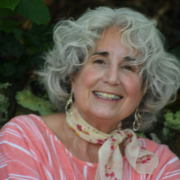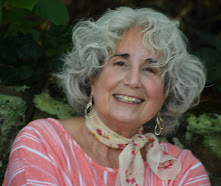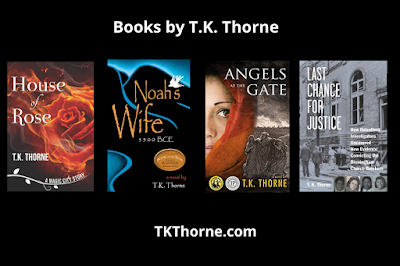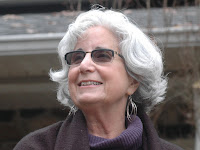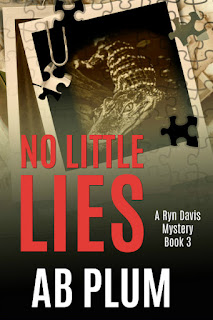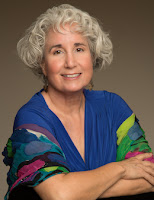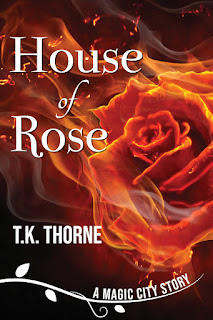Writer, humanist,
dog-mom, horse servant and cat-slave,
Lover of solitude
and the company of good friends,
New places, new ideas
and old wisdom.
One of the confusing calls today is the one to “Defund the Police.” My
thoughts on the subject are seasoned with a career in law enforcement, a
master’s in social work, some research, and a couple of decades of
contemplation.
Actually defund the police
Some who call to defund police, mean it. They want to restructure society
without police. I sincerely hope we figure out how to do this, but at this
point in our development as human beings, abolishing police is not a workable
idea, particularly in the U.S. Consider recent events in Chicago (where in two weekends, 34 people were killed and 186 were
shot); consider also Seattle’s failed
no-police protest zone experiment; and the violence in our own communities.
Abolishing police would stop police abuse issues, but it would create a
vacuum that could be filled with violence. Even a country with minimal crime
like Norway has a police department.
Replace the department
For others, defunding the police means they want to dismantle the particular
law enforcement system in place as completely dysfunctional and reassign it. A most unlikely place did that. Camden, NJ,
in 2010 had the highest crime rate in the country. They faced a $14 million
budget deficit and had to lay off half their police force. What happened?
Arrests in 2011 dropped by half, burglaries increased 65%, and the murder rate
skyrocketed. So that is one lesson about defunding police.
Here’s the other side of what happened. In desperation, Camden dismantled
their (union represented) police department and merged with the county,
putting more officers on the street for less money. The change
also gave them an opportunity to instill new cultural values in the
department, significantly reducing excessive use of force complaints,
and crime rates dropped 42% compared to
a drop of 4.9% in U.S. (in the same time period.)
Redefine the job and reallocate resources
But for the most part, the meaning of “defund the police” means a city
reviewing what it wants and expects from its police, what it values and
believes is effective in terms of where it puts resources.
I say this is long called for—both for government and for police agencies
themselves. I’m not saying the Birmingham Police Department, in particular,
needs an overhaul. First, I’ve been too long removed to comment on that,
and second, it was an honor to have served there with many extraordinary men
and women doing a difficult and demanding job, some of whom gave their lives.
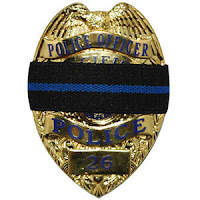
But there are systemic issues with the culture of law enforcement. Even as a
rookie, I was confused by the militaristic model of training we received
(picture red-faced sergeants yelling at recruits, making them drop for
push-ups, etc.) A military model works for . . . um, the military, which
actually has an “enemy” and relies on instant, unquestioned obedience. That
kind of role model is reinforced by peer pressure and instills in police
recruits an expectation and demand for obedience and a respectful attitude from
the public, which adds to the (human) difficulty of maintain stoic responses in
the face of the opposite behavior. It is also not conducive to the type of
independent and sometimes creative decision-making required of police officers
on the street.
Officers are trapped in a system that measures and rewards them for writing
tickets and making arrests. Think about that. Number one: Neither interactions
are helpful to developing relationships. Number two: Officers tally up their
tickets and arrests for evaluations and promotional decisions. So, in reality,
officers chase an unknown number—a type of reward system that creates anxiety
and competition, ill feelings in the public, and overfills our jails and
prisons. Obviously, that is also driven by what society defines as criminal.
Add to that the systemic dysfunctions that create a breeding ground for
crime, like a dearth of available, affordable drug rehab, mental health
support, housing, and predatory lending, limited services for the homeless,
food deserts, lack of arts and enrichment in schools, mentoring and tutoring
needs, high speed internet, transportation, job training and placements—only to
name some of the challenges facing a large portion of the population, mostly
the people who both need and fear the police the most.
Then blame the police for not being able to solve the problems that arise
from society’s dysfunctions. Throw in the perception and sometimes reality of
police abuse, and it’s a no brainer to realize that much of the public has no
trust for police or that police feel they are made “the enemy” and tasked to do
an impossible job.
I want to be clear that police need to protect themselves and others. In 2/3 of the nation’s police departments the number of
deadly-weapons attacks on officers averaged 27 per day.
Officers need to be constantly aware and alert but call on those responses only
as a last resort. This is a daunting requirement.
The links to crime
Studies show it is not the number of police or the number of arrests that
affect crime. An avalanche of research in criminology is linking declining legitimacy with increases in crime.
When Camden lost half its police force, it may not have been the lack of
arrests per se that drove crime, but the perception that there weren’t enough
police. People virtually stopped calling the police for misdemeanor
infractions.
Predatory violence can increase because offenders believe victims and
witnesses will not report incidents to the police—the primary reason that many
homicides go unsolved and perhaps a reason behind the explosion of shootings in
cities like Chicago during a pandemic. They don’t believe the police can or
will be able to stop it.
Trust is key
Let’s talk about lack of trust. How do you trust someone you only have
negative interactions with? How do you address the fear of police? For me
personally, the reality of that hit home with two events—the killing of George
Floyd and the Pittsburgh synagogue massacre. As a Jewish person, I appreciated
the outpouring of sympathy and outrage at the massacre, but it did not
make me feel safe. And I can understand that no amount of white
participation in protesting and support makes black people feel safe.
The number of police shootings of unarmed Black shooting
victims is down 63% from 2015. That does
not make black people feel safe anymore than Chicago residents feel safe
knowing that the weekend shooting sprees were anomalies in pandemic crime
trends. Trust is going to take a long time to build and is going to be about
people interacting with people in the community. It must be, as it always
has been, about relationships.
And how do police build relationships if they don’t have the time to do
anything but answer calls or if they are busy making traffic stops and arrests
to go on their monthly reports? I’m not saying those things should not be in
law enforcement’s toolkit, but the majority of responses society needs from
police officers are better addressed by a mindset and training as problem
solvers with crisis intervention and de-escalation skills. Try to fit that into
a military training model.
That said, even the military has recognized that many of today’s soldiers
need multiple skill sets and the trust of the community in dealing with warfare
in areas where the enemy is indistinguishable from innocent civilians. That
takes a maturity, training, and value set reinforced by standards,
expectations, and peers. The latter is the hardest to tackle but not
impossible.
Police need to be screened, trained, evaluated, and importantly—paid as
professionals doing an extremely difficult job. Yes, Camden put more officers
on the street by paying them less, but their turnover is very high. That means
they are investing in people who don’t stay. It helps payroll, but in the long
run it will cost the city. Paying police more by itself doesn’t solve the
issues, either, but without that, you are looking at reduced applicant pools,
both in quality and quantity or, as in Camden, police who stay long enough to
get trained and then leave for other jobs or other careers. That is actually an
ongoing problem plaguing departments throughout the country, including
Birmingham.
Change is needed, both for police and society. But just taking
money from the police department is not going to accomplish anything of value.
A safest metros’ report found that the most dangerous cities dedicate about 50% fewer dollars
to police and public safety, and their community services allocations are 3
times smaller than in the safest metros.
In particular, taking street officers away from areas of high crime would be
counterproductive and abandoning those who need them the most (see Camden, NJ).
The city needs to invest in solving its problems, and that is going to take
funds and dedication to do something hard. In a time when revenue is
decreasing, that also means how to do more and be effective with less.
How to reduce costs
Although more officers overall doesn’t seem to affect crime, deploying more officers on the street in high crime areas
has shown to be effective, and not result in more arrests,
just less crime, especially if they have the time and motivation to get out of
their cars and talk to and interact with the community. That means reducing
costs and redeploying sworn officers.
Utilizing trained civilians could reduce the need for sworn officers in many
positions. Working the front desks at precincts, as assistants in detective
offices to deal with paperwork, contacting victims, etc. (possibly freeing some
detectives to return to street duty). Why do we need armed officers to respond
to accident scenes to take reports for insurance companies? Trained citizens
could do that or even respond to theft/burglary or other after-the-fact calls
where the major requirement is filling out a report.
Birmingham was an early leader (1970’s) in hiring social workers to follow
up or to respond with officers to calls of domestic violence, mental health,
child abuse, etc. But there are only 5 positions to cover the city 24/7. That
program should be expanded, along with the resources they and police officers
need to support their efforts to address community problems.
Technology can be employed. Why do police have to stop vehicles to
give tickets? Yes, sometimes drugs or weapons are found that way, but is
it worth it in terms of the negative association of citizens with police and
the opportunity for harm to both inherent in even routine traffic stops?
We are quite capable of having cameras and computers monitor traffic violations
and issue appropriate tickets.
Perhaps it is time to reexamine the possibility of sharing costly facilities
like jails, dispatching, training, and vehicle pools and to evaluate law
enforcement hiring and training—a topic unto itself. Monies saved can go toward
addressing the communities’ needs.
But it shouldn’t stop at police departments. A reevaluation of where monies
are going throughout city government is called for, to weigh the value of
administrative costs and to shift people and resources where they are
needed—more police on the streets, more investments in schools and youth, drug
rehab, job training, and mental health services to start. With access to these
resources, police can actually be problem-solvers, have alternative strategies
to arrest, and can build trust in the communities they serve, and that will
make their jobs easier and more rewarding and our communities safer.
Change is hard. It is much easier to keep the status quo. The pandemic has
created a tough financial time for cities in addition to the pressure of calls
for reform. We need to do more than just survive it. We need to use the
opportunity to take a hard look at what we do, who we are, and who we want to
be.
T.K. is a retired police captain who writes Books, which, like this blog, go wherever her interest and imagination take her. More at: TKThorne.com
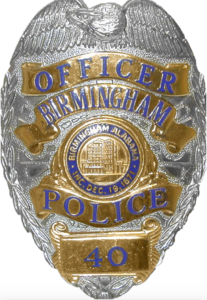 My partner and I went into a well-known restaurant in Birmingham, Alabama to eat dinner. We were working the Evening Shift (3-11 pm). Though we were both young female officers in the Birmingham Police Department, the shift sergeant had put us together to work a beat that included two housing projects, a couple of fast-food joints, and one “nice” restaurant—the one we walked into.
My partner and I went into a well-known restaurant in Birmingham, Alabama to eat dinner. We were working the Evening Shift (3-11 pm). Though we were both young female officers in the Birmingham Police Department, the shift sergeant had put us together to work a beat that included two housing projects, a couple of fast-food joints, and one “nice” restaurant—the one we walked into.![]()
![]()

